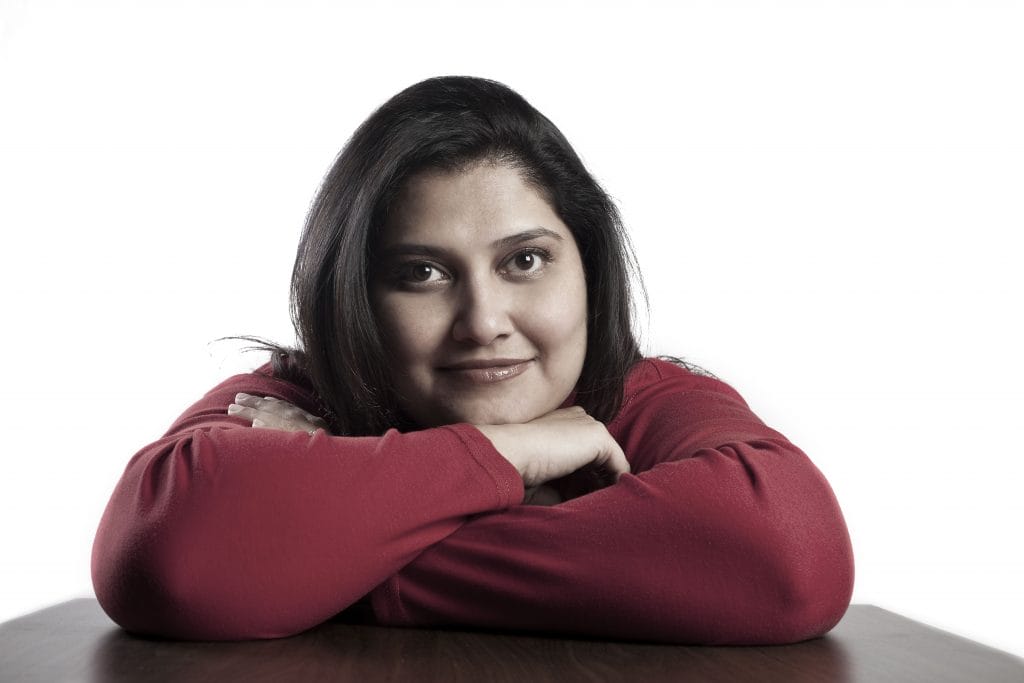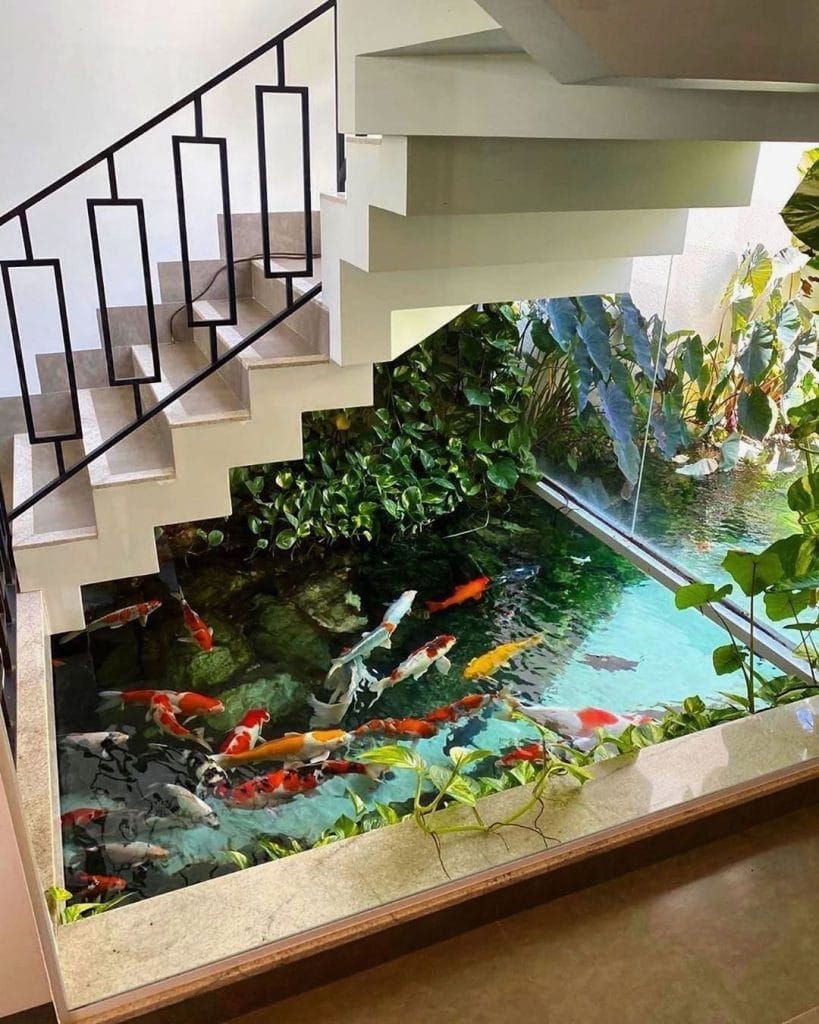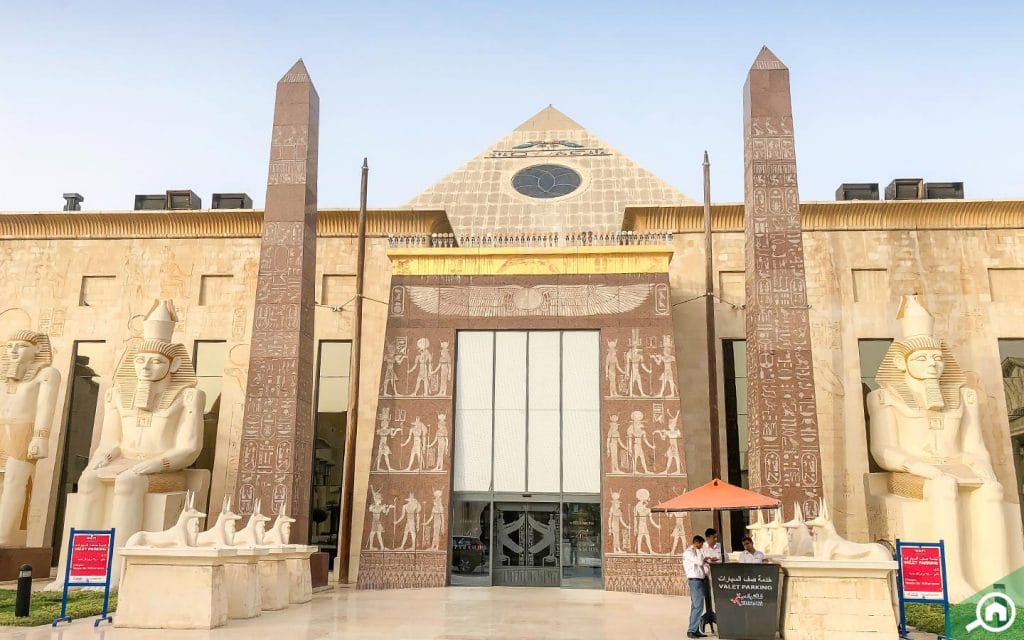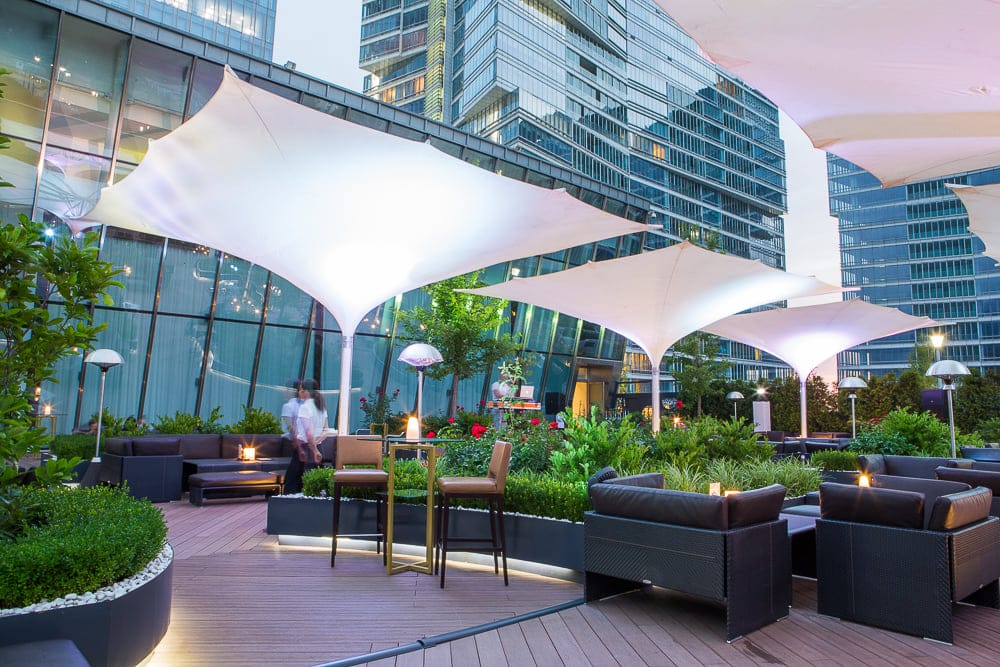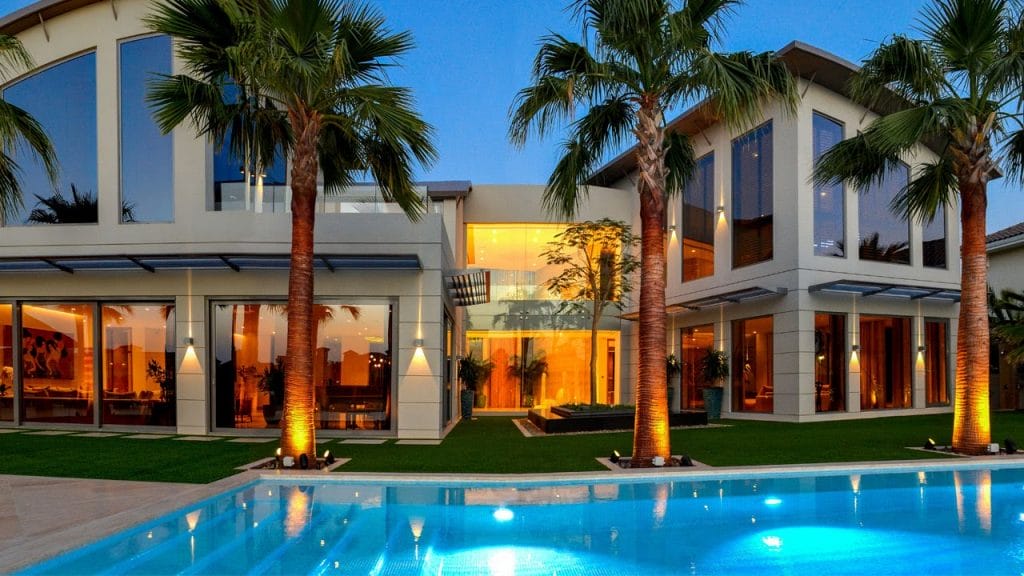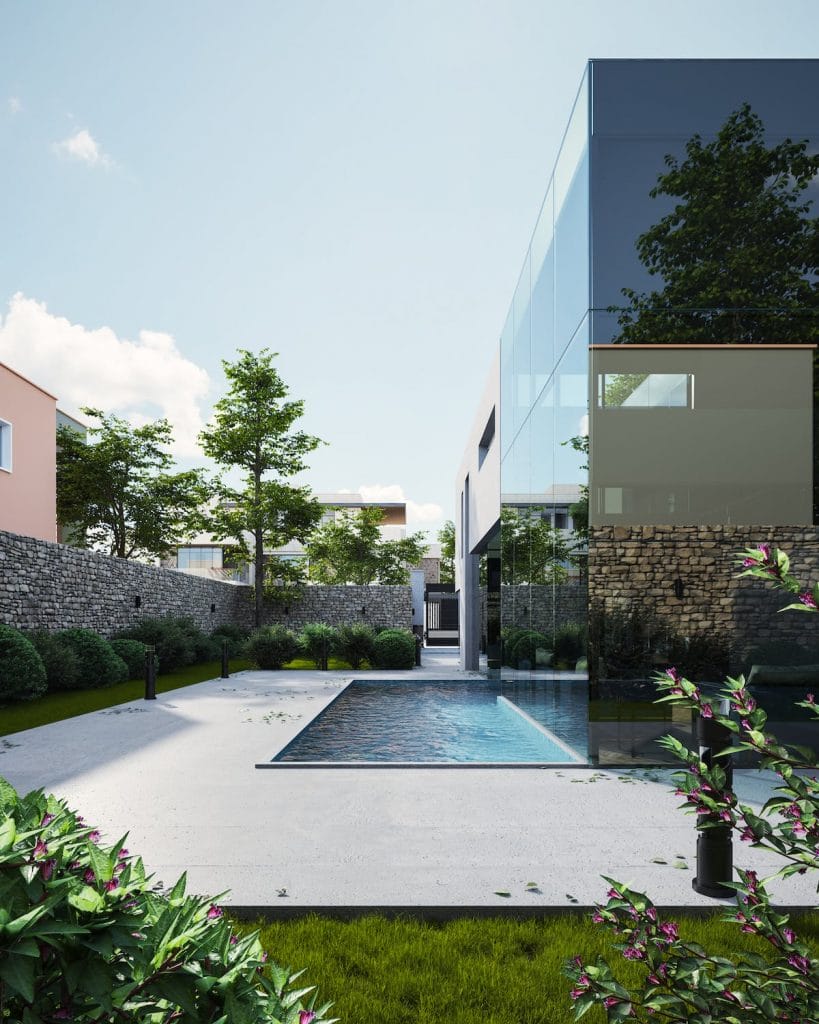A play of wind and water
By Shaan Bajaj
I recently went apartment hunting and while I was busy trying to tick off the physical list I made, I did not account for how I would feel when walking into each space. Some apartments technically had everything I needed, but didn’t feel right. When I eventually said yes, it was partly due to how serene I felt the moment I walked in. At the time, I chalked it up to the aesthetic design of the space but after talking to feng shui expert, Shivani Adalja, I believe the principles of feng shui were at play. “Feng Shui means wind and water,” Shivani explains. “It is a play of these elements; wind carries energy while water stops energy. The basis is to enhance what is good with while depleting what is outdated by exercising your control using these elements.”
When 18-year-old Shivani had moved to an apartment in Hong Kong, she was intrigued by the ornaments within, and she inquired what they were and why they were there. Her landlord introduced her to feng shui, the practice that would eventually change her life. Born to an astrologer, Shivani was no stranger to the power of energy, but the question that motivated her to study feng shui was, “how can something non-tangible impact your life?”
As she graduated with a degree in sociology, and joined the corporate world of hospitality, her knowledge in feng shui steadily grew too. “I started learning it in the 90s, and for the first ten years, I just studied. Then, in the early 2000s, I quit my corporate career to pursue the practice full-time.
However, I still don’t think I am a master because I learn something new with each property,” she reveals. In the past 22 years, Shivani has become a leading feng shui practitioner with an extensive portfolio of over 17,000 properties globally. She has worked with UAE royalty, Bollywood actors, The Ritz-Carlton, Soneva Resorts, Etihad, Chopard, Hyatt, Chiva-Som, and many private individuals of note.
She sat down with Masala to provide easy feng shui tips to follow to help you live your best life.
What exactly is feng shui?
People have many misconceptions about feng shui. They think it is funny-looking fish, frogs, a statue of a laughing Buddha, or peculiar ornaments, but truthfully, your house does not need to look like a Chinese emporium. Those items work for people who relate to the folklore of Chinese culture because of the psychological impact on them.
For example, if you are Sikh, if I suggest placing a statue of a laughing Buddha at the entrance of your house, you will look at it as an object. Instead if I suggest placing a photo of Guru Nanak Dev Ji, your mindset shifts as you enter because it is from your culture; it speaks to you. The idea is to improve energy flow by arranging things in a certain way to make you feel comfortable.
Some clients hold unrealistic expectations of feng shui, thinking it will make them rich or successful overnight. I give them this analogy: “If you are driving and there is a speed breaker, you have to break and drive over the bump. All feng shui does is reduce the bump, but you still have to drive.” There is no shortcut, there is no key that opens the treasure box, you have to do the hard work.
Will feng shui change your destiny? No. Will it make you win the lottery? Also no. Will it find you a date with George Clooney? Absolutely not, but feng shui is like air conditioning. The more comfortable you are, the better you perform.
What school of feng shui do you follow? What are its principles?
I follow the school of Flying Star Feng Shui or Xuan Kong Fei Xing in Chinese.
Practitioners who build hotels, Olympic stadiums, and other similar facilities practice its principles too. This particular school relies heavily on formulas and calculations. It considers three things: which year the property was constructed in, the direction of the property, and who is going to live in it. You match those calculations. It is not science, but rather an art of deduction. I follow all the steps and after deducing, I have a clear answer.
What are the benefits of using feng shui when designing a space?
Feng shui can get rid of energy that does not belong to you. As a result, your thought process becomes clear, agitation reduces, and sleep improves. It is a very subtle change in residential properties; your space feels comfortable and it balances your energy, letting you live your life to the fullest.
How have you personally benefited from applying feng shui within your own life?
When I first started practicing, I had not implemented my knowledge into my own life until I bought a house in Abu Dhabi. I decided to implement the formulas to my new space, and as I was doing so, many doors opened up for me professionally. By changing colours and layouts, things automatically opened up. I got to travel the world, meet people, and learn, all while being part of major projects. I have been very blessed; it has influenced my life in many positive ways.
What has been your most challenging project, and how did you succeed in the end?
A client of mine built a house, and twenty years later, he built an extension to the house. When his grandson got married twenty years after the first extension, he built a second extension. However, the roof of all three were the same. Feng shui changes in twenty-year cycles; each cycle has different calculations. It was challenging because which calculations would apply? Would it be the first cycle when he built the house? Or the second cycle when he built the first extension? Or the third cycle?
The biggest lesson I learnt from this project was that the problem is only as big as you make it to be. To overcome the issue, we created visual partitions. There were no walls in between, and it was still the same house but the design aesthetic of each house changed as you walked through. Then we followed the calculations of each house.
Which projects have been particularly meaningful?
I feel a sense of achievement when helping small shops, vendors and small business owners. When you help someone like that and turnover goes up or they experience an improvement, I feel very happy.
One client in particular stands out. She would hear someone whispering in her ear every night as she fell asleep in her apartment. She approached me for help. After visiting her apartment, I went back to consult my books until I found the answers in classical texts. I informed my client of the steps, which required ripping out the carpets from the floor of the entire apartment. She did everything to the T. It was an experiment for me too, as I had never done that before, but it worked. She called me to say, “You know, I haven’t slept this peacefully in a long time.” This experience will stay with me for a long time.
Is there a difference between using feng shui principles for a hotel and for a home? What would the major difference be?
For a residential property, my focus is on enhancing health and relationships; if you are healthy and your relationships are well, then you will be happier in life. However, when designing hotels or commercial establishments, the aim was to increase footfall. I suggest that hotels design dazzling lobby areas and receptions, as you want people to be pulled into the property. For commercial establishments, it is also important to consider whether it is a family business that will be passed on, in which case you must take into account the future twenty-year cycle too.
As you work with many different companies, especially hotels, how do you incorporate their brand voice into your work?
Since my expertise is required at a design level, I work with architects and interior decorators on these projects. As each hotel has its own distinct brand, my suggestions will be based on what suits their voice and image. My calculations inform me of which elements to add, and ideal layout design. Ultimately, I only make recommendations; the final decision will always be theirs. When recommending, I give them three options, ranking them from best to second best to third best.
What are some difficulties when using feng shui to design public areas? How do you ensure it applies to the masses?
When designing public areas, I consider the following:
- Which country am I working in?
- What is the dominant religion of that country?
- What is their belief system?
- Does my proposal contradict, interfere, or conflict with their belief system?
- Compass directions
- Function of space
- Practicalities and calculations
For example, Siam Paragon does exceptionally well, since it has been designed using feng shui principles. It features multiple entrances, a huge water feature, and the elevators are in sight as you enter. This energy pulls you up into the mall. In contrast, Icon Siam is boxy and lacks flow, therefore the mall is often empty. However, their food court receives a lot of footfall as the escalators lead there.
What tips would you give our readers for incorporating feng shui into their lives?
- Start with cleaning your wardrobe and remove anything you haven’t used in one year, not including winter or desi wardrobes.
- Avoid buying or renting from areas that pull a lot of energy, like a graveyard, hospital and a place of worship.
- Avoid renting, buying or building at a major intersection, as there are many conflicting energies at play.
- Clean your floors with salt water; do this by mopping with salt water first then normal water. As salt is a cleaning agent, it cleans your aura, much like the sea.
- Keep electronics and bright colours away from your bedroom, office or any areas meant for relaxing
and working. Save the vibrant colours, music, lights and electronics for the kitchen and living room. - When designing a family home, place the elders towards the back of the house and the younger generation towards the front.
- In an office, the C-suite should be towards the back, while the receptionist, marketing, and sales should be at the front.
- Stay clear of oversized bulky furniture as it can block the flow. Less is more.
- Pick a place that resonates with you. If your gut says no, don’t go.



